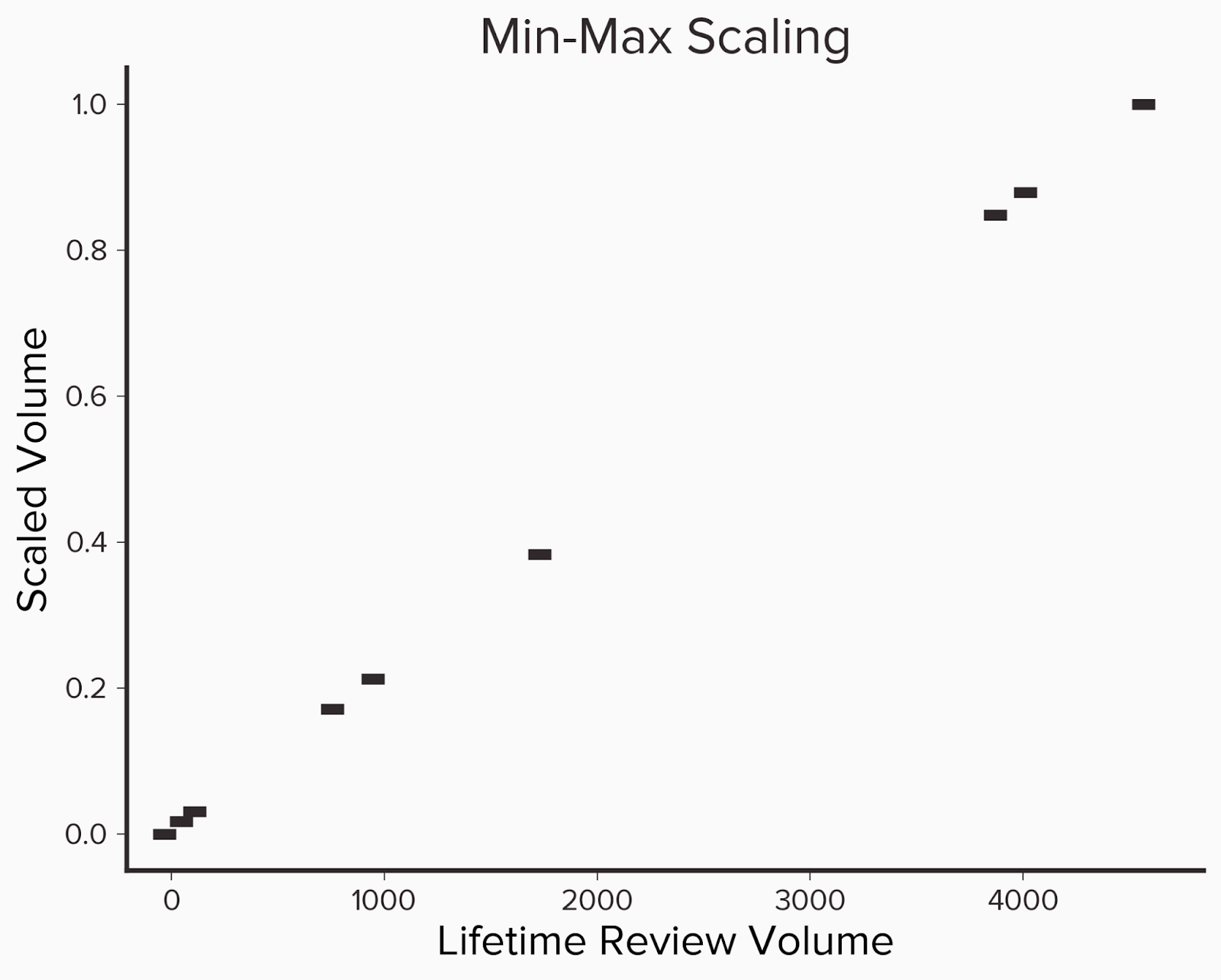Boston, Massachusetts, has a rich history as the cultural and financial center of New England.
More than just a city with dominant sports teams and Revolutionary roots, Boston also has a strong connection to the automotive industry.
In the 19th and 20th centuries, Massachusetts housed robust automotive manufacturing facilities. Nearby in Framingham, General Motors ran one of the nation's largest automotive manufacturing plants, employing 5000 workers at its peak.
In the city itself, the “Auto Mile”, once present on Commonwealth and Brighton Avenues, was home to 117 automobile businesses during the rapid growth of the auto industry in the 1920s.
Dealerships in the Boston area showcase strong review response rates, high Google star ratings, and significant review volume. To earn the best reputation in Boston, dealers must provide top-notch service while actively soliciting customer reviews.
Are you a car dealer in Boston? If so, read up on automotive customer survey software - one of the best sentiment and feedback collection options at your disposal.
Using our Automotive Reputation Index, which ranks dealers by volume, rating, and response rate, we’ve identified the Boston dealerships with the best online reputations.

-
Expressway Toyota earns the top-ranking spot in Boston, with an overall health score of 97. This dealer achieves first place by leading in almost every analyzed reputation metric. However, Expressway Toyota especially outperforms in relative lifetime review volume, with almost double the amount of lifetime reviews than the second place spot.
-
Competition for the best online reputation in Boston is steep, with only a 5-point difference in overall health scores between the #4 dealer, Herb Chambers Lexus of Sharon, and the #10 dealer, Altamian Honda. With health scores of 74 and 69 respectively, these dealers should both focus on increasing monthly review volume to break away from the pack.
-
Bernardi Toyota comes in sixth place, even with the lowest review response rate of Boston's top dealers - 89%. This dealer’s ranking would be significantly improved by a more consistent and structured review response strategy.

-
Herb Chambers Lexus of Sharon secures the #1 spot of top luxury dealers in Boston with a nearly perfect health score of 99. This dealer blows the competition away with the highest lifetime and monthly review volume, a 4.8 average Google star rating, and a nearly perfect response rate of 99%.
-
The other luxury dealers will have to drastically increase monthly review volume while maintaining high star ratings and response rates to have a chance at dethroning Herb Chambers Lexus of Sharon as the #1 luxury dealership.

-
Expressway Toyota again secures the #1 online reputation spot when looking at non-luxury dealers in Boston. This dealer dominates the rankings with the highest lifetime and monthly review volumes.
-
Autofair Toyota, is tied for 5th place in the non-luxury dealer ranking. Interestingly, it has the highest review response rate of all dealers - 98%. However, this success is overshadowed by a low adjusted rating and low monthly/lifetime review volumes. This dealer will need to increase each of these reputation metrics while maintaining its high response rate to improve its online reputation.
*Note from the editor. The Automotive Reputation Index offers substantial coverage of the nation’s dealerships, but it’s still growing. If your dealership is not yet listed on the Index and you’d like to add it, submit your information and we will add it during a regularly scheduled update, roughly once per month.
Widewail's rankings are based on the Widewail Automotive Reputation Index. Explore the full dataset:

Ranking Methodology
To rank these dealerships fairly, we chose a method that takes into account the fact that dealerships on our list receive a wide range of monthly review volume, in part due to varying levels of opportunity. For example, luxury brands simply can never sell as many cars as non-luxury brands, the price point limiting a luxury dealership's market.
To compare two dealerships with very different review volumes directly wouldn’t be fair. A dealer with two 5-star reviews doesn’t necessarily deserve to be ranked higher than a dealer with 200 reviews and a 4.5-star rating. With few reviews, the former doesn’t offer enough data for us to use to understand its performance. However, we couldn’t just ignore locations with very few reviews, as that would introduce bias into our rankings.
To solve this, we used "adjusted ratings" in our calculation of dealership ranking. In essence, "adjusted rating" is a dealership's star rating that takes into account how its review volume compares to that of other dealerships in that area. We calculated adjusted ratings by using a technique called additive smoothing which we explain below.
Additive Smoothing
The approach we’ve used is a form of what’s called “additive smoothing.” This process allows for an unbiased way to rank two otherwise unequal dealerships. At its core, additive smoothing levels the playing field by artificially increasing the number of reviews each dealership has by adding the same number of reviews of each star rating to every dealership.
Customer Engagement
Additionally, we take into account the percentage of reviews that a dealership has responded to in our calculation of ranking, as Widewail strongly believes that review response is indicative of a strong reputation strategy.
Activity
The last component revolves around how much review volume a dealership receives, which can be broken down into two parts - their lifetime volume and average monthly volume. Lifetime volume can be thought of as a popularity metric. It’s an important metric and one of the first numbers that a potential customer will see when they start looking at reviews. The second, average monthly review volume, is representative of how active the dealership currently is. We can think of it as follows, lifetime volume captures a historical view of the dealership whereas average volume gives insight into the current status. The final component for the volume metrics is to scale them so there is a more meaningful comparison. To do this we use what is known as min-max scaling. First, we group dealerships by their respective city and then find the dealership with the most volume and least volume. Then for each dealer in the group, we subtract the lowest volume and divide by the difference between the highest and lowest volume. The formula for this can be seen below.
x' = x - min(x)max(x) - min(x)
The main advantages of this approach are that all the volume metrics can be mapped to a value between 0 and 1 and the relative difference between dealership volumes can still be preserved.
Below we see an example of this where we have 9 dealerships with differing lifetime volumes, which we then scale. Notice that the relative distance between the actual volumes and the scaled versions is the same.
Below we have an example of ten dealerships, their review volume, and the adjusted relative volume. We can calculate the relative volume by sorting the dealers by review volume and determining the percentage of dealers that have fewer reviews. Here we see that dealer D had the most reviews and so they get a score of 1.
|
Lifetime Volume
|
Scaled Volume
|
|
4619
|
1
|
|
4065
|
0.88
|
|
3922
|
0.85
|
|
1783
|
0.38
|
|
1001
|
0.21
|
|
810
|
0.17
|
|
164
|
0.03
|
|
101
|
0.02
|
|
22
|
0
|

The Ranking Formula
(adjusted rating / 5) * 0.3 + (response rate) * 0.3 + (lifetime volume) * 0.15 + (avg monthly volume) * 0.25
Weighting Rational
We chose to weigh each feature as follows: adjusted rating accounts for 30% of the overall score, response rate also accounts for 30%, and review volume is 40%, which is further broken down into lifetime volume (15%) and average monthly volume (25%).
Weight selection is based on Widewail’s depth of expertise in the industry and we believe is a fair representation of what should be considered a standout reputation.
We’ve broken the weighs into three categories:
Activity (40%)
We believe the amount of review activity is the most important indicator of reputation health for a business, and is a leading driver of local search rankings. We’ve broken this category into two components: lifetime volume (15%) and frequency (25%). Lifetime volume is our “popularity” metric.
Engagement (30%)
Engaging with customers by responding to reviews is a key component of a healthy reputation.
Quality (30%)
The rating has a substantial impact on if a business shows up in local search and if that business is entered into a prospect’s consideration set. Rating is a key identifier of business health.
Calculation Details
If a company has an adjusted rating of 4.2, responds to 10% of their reviews and has an adjusted lifetime volume of 0.90 in their city and 0.87 for their scaled average monthly review volume, then we would calculate their overall rating as follows
(4.2 / 5) * 0.3 + (0.1)*0.3 + (0.9)*0.15 + (0.87)*0.25 = 0.252 + 0.03 + 0.135 + 0.2175 = 0.6345 * 100 = 63.45
Note: Since response rate accounts for 30% of the overall ranking, if a dealer doesn’t respond to any reviews that automatically caps the max value they can receive to 70.






